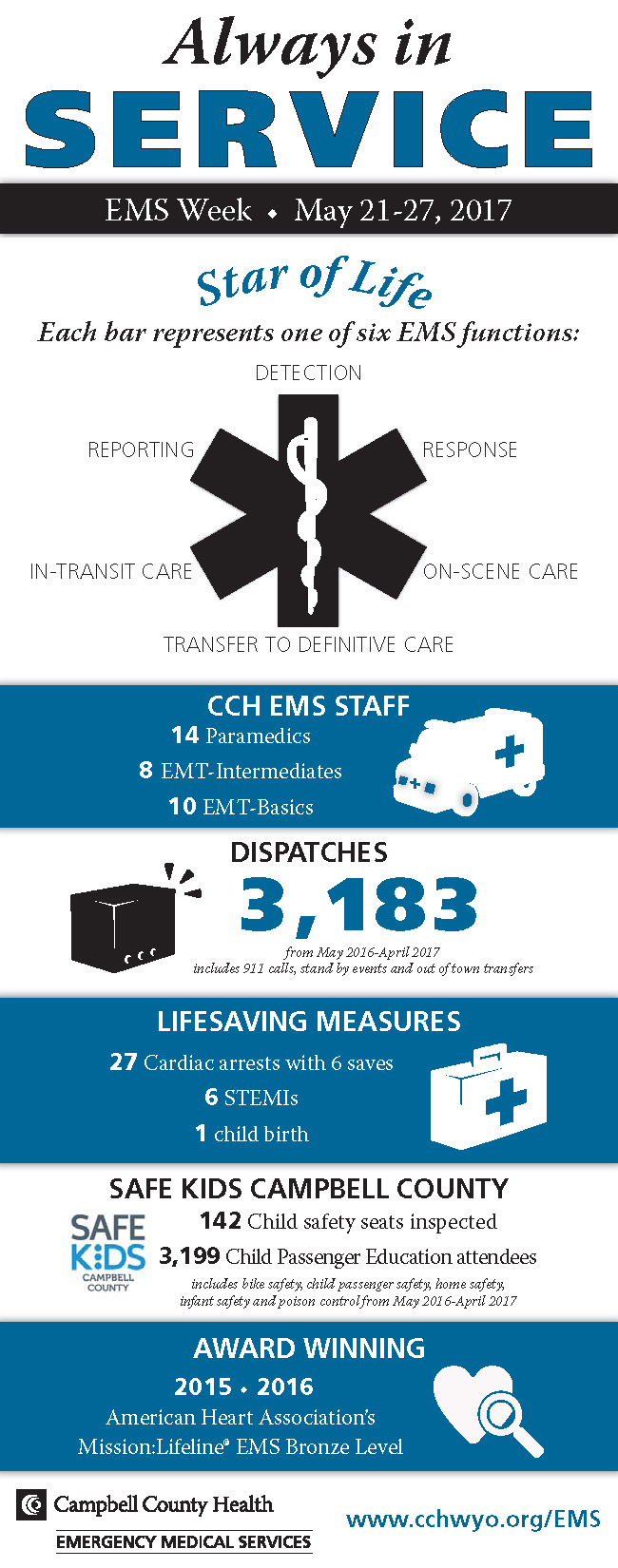Join Campbell County Health May 21-27 as we honor our
Emergency Medical Services providers during
National Emergency Medical Services Week to honor the dedication of those who provide the day-to-day lifesaving
services of medicine’s front line. EMS professionals are Paramedics,
Intermediate EMTs, Advanced EMTs, Basic EMTs and EMT/RNs—they are
people who help others, save others, and serve others with compassion
and courage.
This year, CCH asked four of our EMS pros some questions to help you better
get to know them. Check out what they had to say. And, when you see our
EMTs and Paramedics around town, we encourage you to say hello!
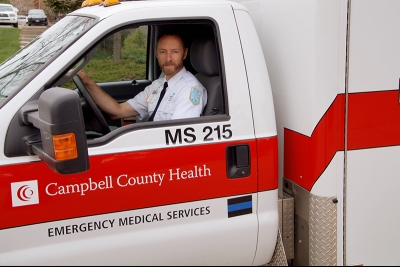 CCH EMS Director Christopher Beltz, EMT-Paramedic
CCH EMS Director Christopher Beltz, EMT-Paramedic
What do you want the public to know about the EMTs/Paramedics that you
manage at CCH?
The public can be assured that the crews responding on ambulances have
passed rigorous training standards to become licensed and complete 100’s
of hours of additional training each year to ensure they are providing
up-to-date competent emergency medical care.
All of our staff—from EMT’s to paramedics—are highly
trained and skilled in the work they do. Becoming an EMT requires completion
of a 150-hour long course that includes classroom time, ambulance ride
time, clinical time in an emergency department and successful completion
of a written test and skills verification. To become a paramedic our staff
must first be a licensed EMT for a minimum of one year. Then, they must
complete a 1,800-hour long course that includes classroom time, clinical
rotations in an
emergency department,
ICU,
cardiac cath lab,
surgery unit, and
behavior health unit. They also have to successfully pass a written test, skill verifications,
and oral cardiology scenarios.
Once staff is licensed, they have to recertify their license every two
years, which requires approximately 100 hours of continuing education
each year. In additional to taking care of approximately 3,500 patient
each year, our staff attend monthly EMS training, regularly train while
on duty, attend classes on various topics offered through the hospital,
and attend our three-day EMS University each year. All staff is also required
to maintain Healthcare Provider level
CPR and EMT-Intermediates and Paramedics must maintain certification in Advanced
Cardiac Life Support and Pediatric Advanced Life Support.
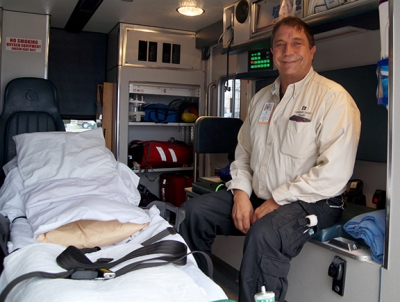 Denny Bohne, EMT-Paramedic
Denny Bohne, EMT-Paramedic
What three characteristics/qualities should all paramedics have, and why?
Love to help others, be prepared for anything, and be a mentor/open to learn.
I love to care for people. In fact, I’ve been picking up and caring
for people and animals most of my life. I’ve started numerous IVs
in cattle and gave calves CPR before I was giving CPR to people.
As a small town medic, people will call you up and ask you to check on
their mom. Or, they will stop by your house on the weekend and ask you
if they should take their sick kiddo to the hospital. I’ve learned
that if someone has a medical question, I will likely need all of my tools
with me; including the ambulance.
As a mentor, you have to share your experiences with your colleagues. They
want to understand your knowledge of a situation and compare it with what
they have done so that they can enhance their patient care. And, I also
learn from them—a paramedic should never stop learning.
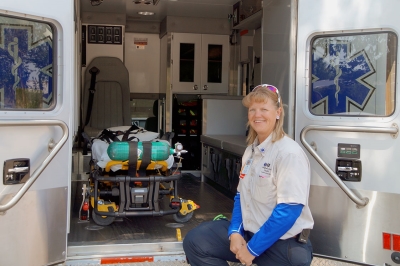 Colleen Long, EMT-Paramedic
Colleen Long, EMT-Paramedic
Why did you choose to become a paramedic?
I wanted to be become a paramedic after working as an EMT basic during
the tornado in Wright in 2005. After seeing what more help I could be
as a paramedic I decided to take the jump. I enjoy the variety of the
calls, you never know what your call may be. To have a patient or their
family stop and tell you thank you for the help, is one of the most amazing
things ever to hear. I love to learn and working as a paramedic you never
stop learning. The people you meet—from patients to coworkers—are
the best part of the job; they bring great inspiration to my life. As
I furthered my career as a paramedic, I wanted to inspire others to join
EMS, I have taught classes for the last five years from EMT basic to Intermediate.
It’s incredible to help those who want to be the helpers, to help
start someone down the path into EMS.
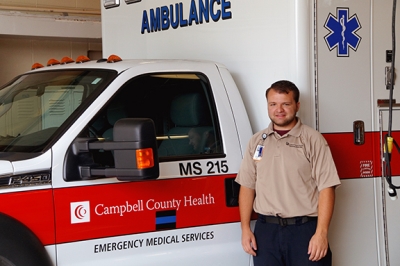
Derric Culey, EMT-Intermediate
What three tips would you give to a new EMT / Paramedic?
1. My coworkers always told me “take a day off, you are going to burn
yourself out.” I never believed them and I never listened to them,
until I went full-time and had days off every week—when I don’t
pick up an extra shift! A day or two off was the best thing for me. Always
take time away from work for yourself, to spend with family or to just
do nothing. Take a vacation every once-in-a-while so there are no chances
of being called in or listening to your pager when you are at home!
2. Don't get discouraged. You are going to question yourself. You will
have bad calls. But in the end, you need to know you did everything you
could do and you used all the knowledge you have! Everyone has a different
way of doing things from assessing a patient to talking on the radio.
Listen to everyone’s advice, and then find the way you like to do
it. Just because you do something different than some of your partners
does not mean you are doing it wrong. Be confident in your work—always
have the “I know I can do this” attitude, just don't be cocky.
3. Don't be afraid to fail. Nothing teaches you more than learning from
your mistakes. You can be your best teacher or your own worst enemy. Surrounding
yourself with your coworkers is important as they will be your biggest
support system. They are the ones who say, “you can do it”
and “don't give up” when you are ready to throw in the
towel. Your coworkers aren’t just the people sitting next to you
in the ambulance either; they are police officers, sheriffs, firefighters,
dispatchers, nurses, doctors, secretaries and anyone in between. They
will all have your back and help you in any way they can. They don't
want to see you fail.
